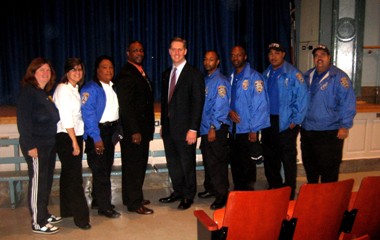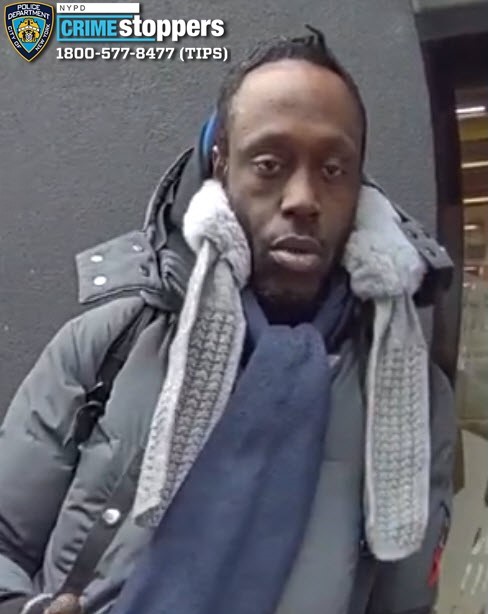The New York Police Department (NYPD) is aiming to take the fight out of bullies.
Officers of the NYPD Community Outreach Division joined Assemblymember Andrew Hevesi at P.S. 144 in Forest Hills on October 24 to present a police program designed to combat bullying in schools across the city.
“Bullying is a real problem, and it can’t be ignored,” said Hevesi. “The NYPD did an outstanding job engaging the students in a discussion about bullying. The officers related to the students as they performed, and made them feel the emotional consequences of bullying.”
The socio-drama program allowed the school’s fifth grade students to interact and engage the officers as they acted out various scenarios involving bullying, including physical and verbal intimidation and cyber-harassment. Suicide was also covered during the presentation.
The officers concluded their performance by encouraging students who witness or personally experience tormenting by bullies to inform an adult.
The presentation was part of the NYPD’s student outreach program, which has been operating for the past five years. The outreach program also addresses gang violence, youth dating violence, smoking, drinking, drugs and peer pressure.
“We want to bring awareness about the topical issues students are facing that may impact crime or school safety,” said Sergeant Dwayne Palmer, a member of the NYPD School Safety Division: Community Outreach Unit. “Bullying has been around forever. But now kids can’t turn it off when they go home. With the advent of social media, kids may be more sensitive. It’s on their computers and it’s on their cell phones. We want to create awareness and dialogues about the issues kids are facing, because they may not know how to deal with it.”
More than 130,000 cases of bullying were reported across the five boroughs during the 2008-2009 school year. Based on these figures, one in every 10 students has experienced bullying.
“We work in partnership with the NYPD and community groups to ensure our schools offer safe, educational environments for our students,” said a Department of Education (DOE) spokesperson. “The NYPD Community Outreach Program supplements the work the DOE is doing in our schools.”
In an effort to quell peer persecution, Hevesi hopes to introduce the NYPD’s program to schools across his district, as well as involve parents in his preventative plans.
“Bullying is preventable and we need to start treating it that way,” Hevesi said. “It is important for students to learn about bullying at school, but I also want parents to get involved. Being able to detect the signs of bullying and giving the proper advice to deal with the situation is something parents must be prepared for. I plan to organize workshops with the NYPD for parents that want to learn the best ways to discuss bullying with their children.”
NYPD combats bullying





























